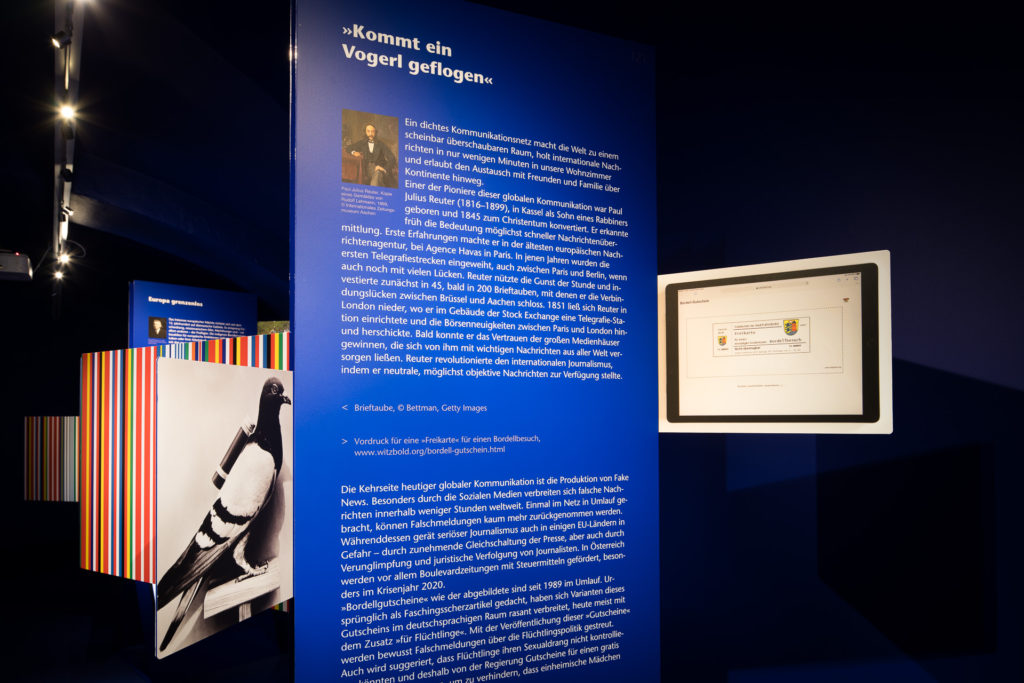European Diary, 25.2.2021: 122 years ago today, Paul Julius Reuter, the founder of the “Reuters Telegraphic Company” news agency, died in Nice. Paul Julius Reuter was born under the name Israel Beer Josaphat on July 21, 1816 in Kassel, where he grew up as the son of Samuel Levi Josaphat, a merchant and rabbi from Witzenhausen. However, he was drawn to science and journalism. In Göttingen, he met the mathematician Carl Friedrich Gauss, who was involved in the experiments that led to the invention of the electric telegraph.
In 1845 he converted to Lutheran Protestantism in London, took the name Paul Julius Reuter and married the banker’s daughter Ida Maria Magnus in Berlin. A short time later, he became a partner in a new publishing house with a bookshop, which published not least democratic writings under the name “Reuters und Stargardt” in 1848. After the failure of the revolution, Reuters had to flee to Paris. “Reuters and Stargardt” became “Stargardt,” still a leading antiquarian bookstore in Germany today.
But Reuters remained true to his convictions and now became involved in the field of press freedom and transnational communication. In 1850, he founded a news agency in Aachen, which initially closed the gap between Brussels and Aachen in the connection Paris – Berlin with carrier pigeons that traveled much faster than the stagecoach. In 1851, telegraphy replaced this link as well, eventually connecting Great Britain to the continent.
Messages arriving by ship from the U.S. were soon expedited from Cork in Ireland to London faster than the ship itself could get there. Reuters news transmission secured the decisive time advantage. Not least, the stock market reports were worth their weight in gold in the truest sense of the word. Soon he was able to deploy correspondents in all the world’s major cities, and his joint-stock company Reuters Telegraphic Comp. Incorporated had a news monopoly.
In 1872, Reuters, who had by then been ennobled a baron, also received a concession from Persian Shah Naser al-Din to develop Persia economically. This included exclusive rights to build railroads and dams, to regulate rivers and to exploit mineral resources, with the exception of gold and silver mines. But his ambitious plans soon failed for lack of capital, and just a year later the Shah revoked the concession after Russia protested. Reuters was compensated with the concession for establishing the Imperial Bank of Persia, which also served as Persia’s central bank until the establishment of the Central Bank of Iran. Reuters adventurous life was filmed in 1940 by William Dieterle starring Edward G. Robinson, “A Dispatch from Reuters.” The German version, which was broadcast on television in 1963, was given the title “Ein Mann mit Phantasie” (“A Man of Imagination”).
Translated with www.DeepL.com/Translator (free version)

